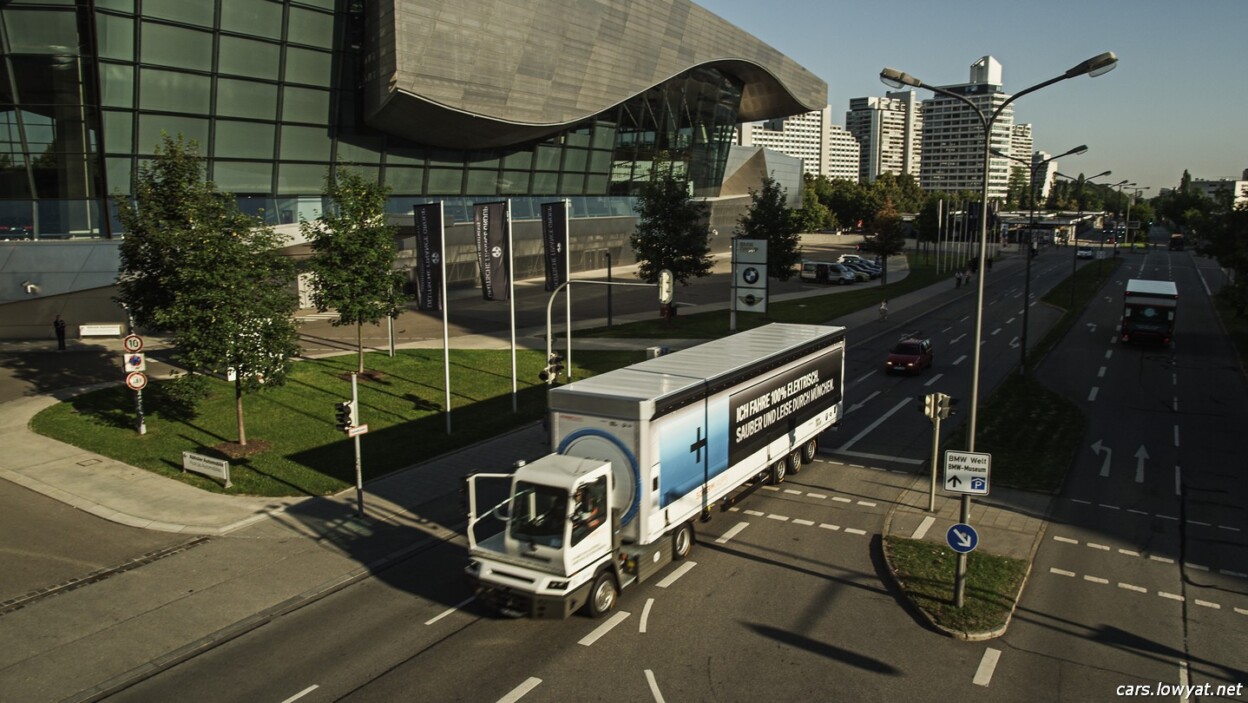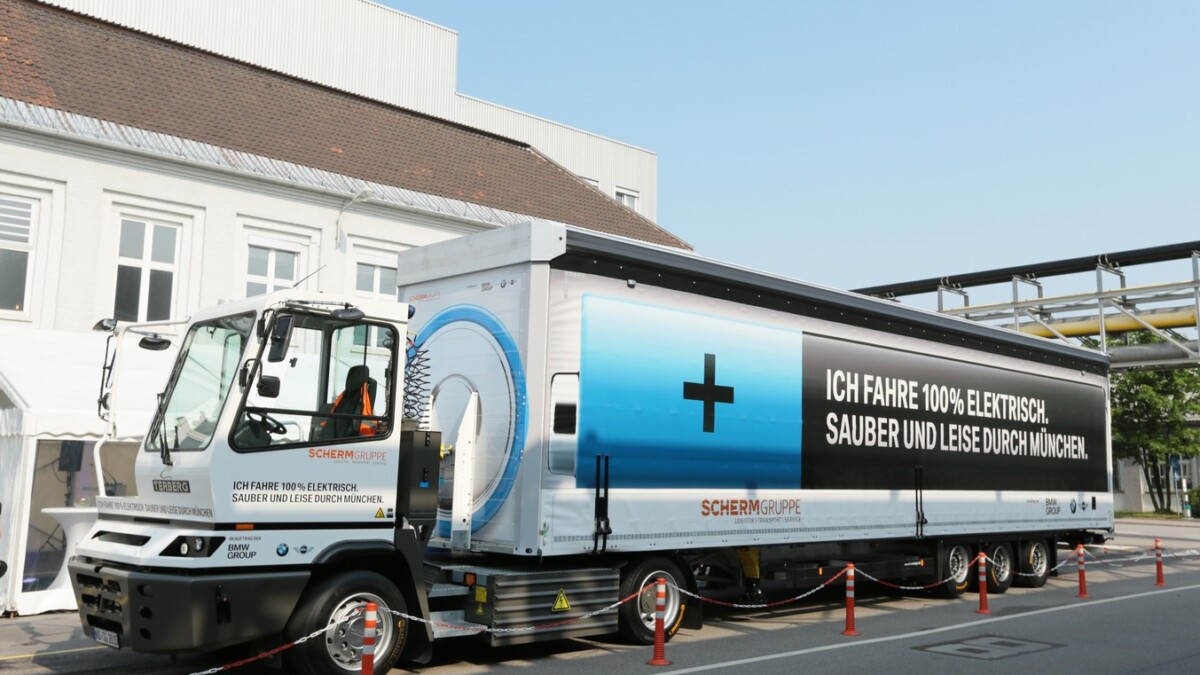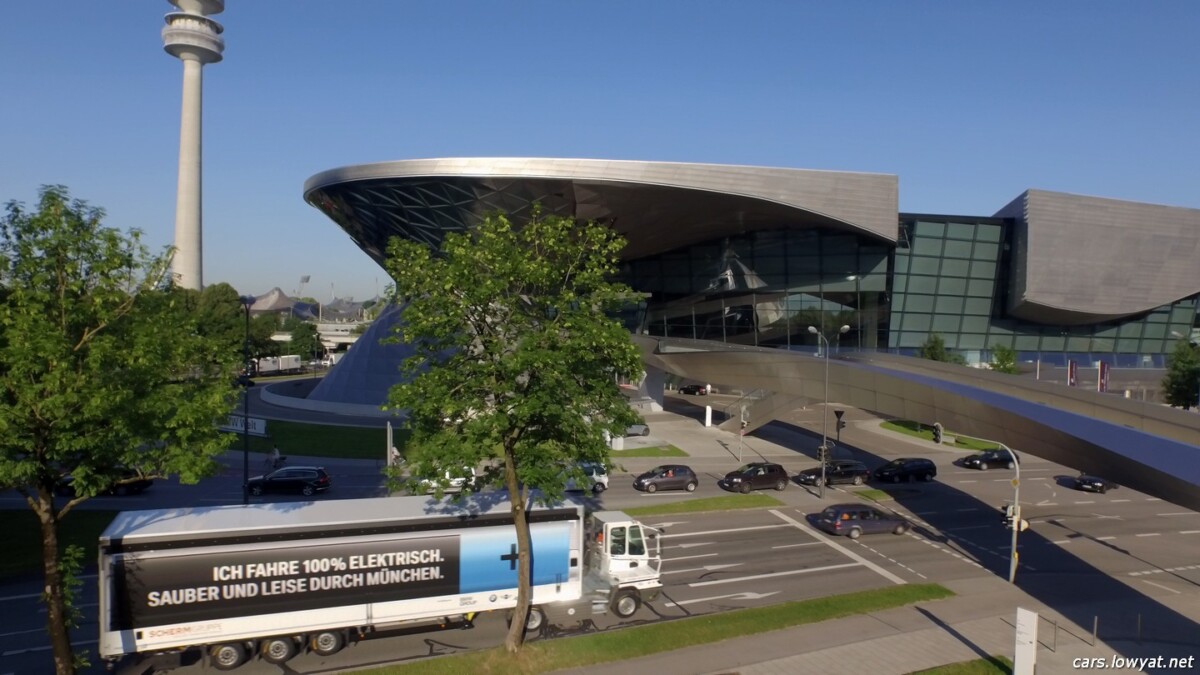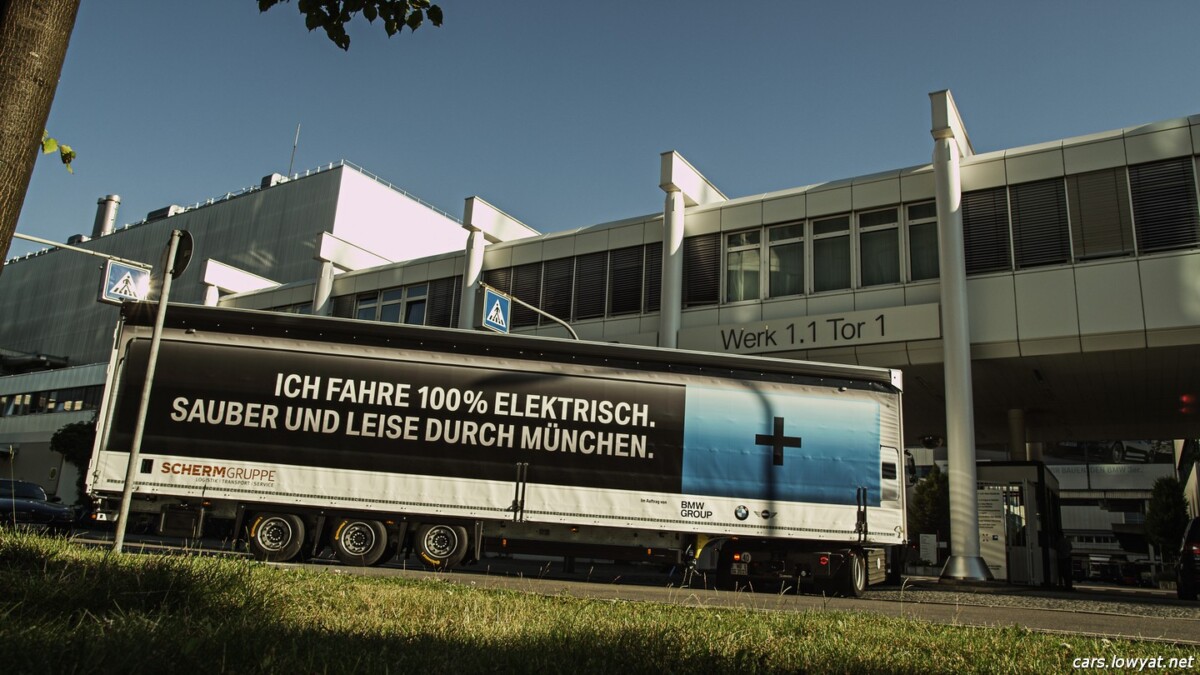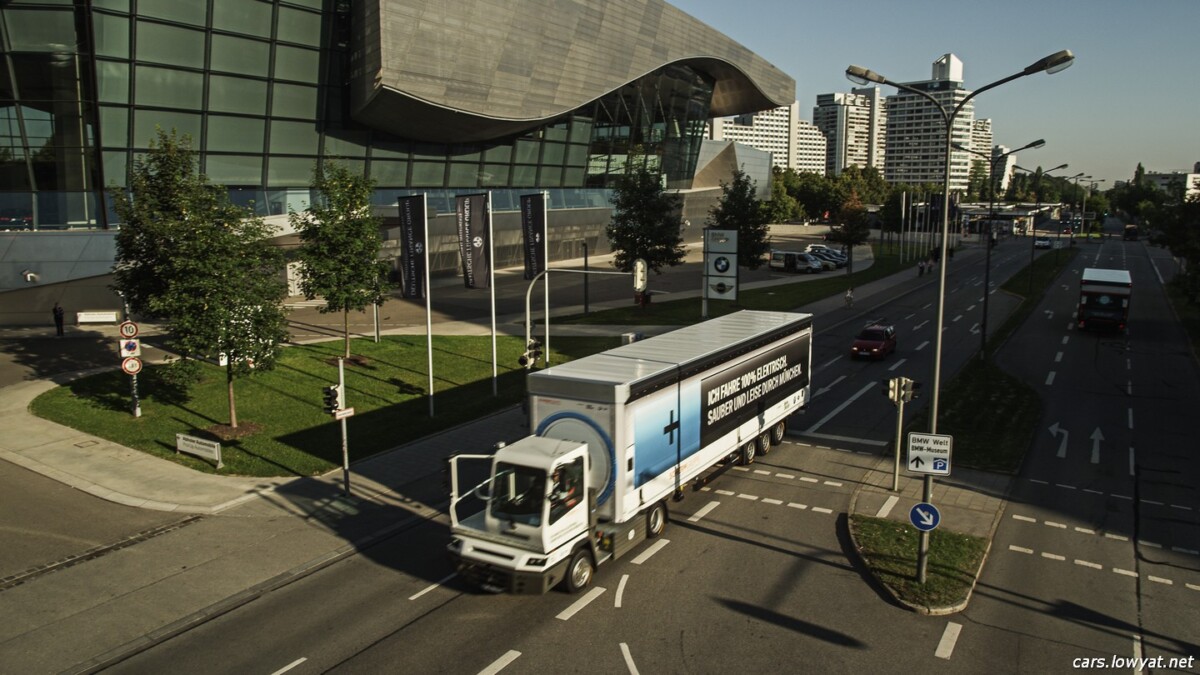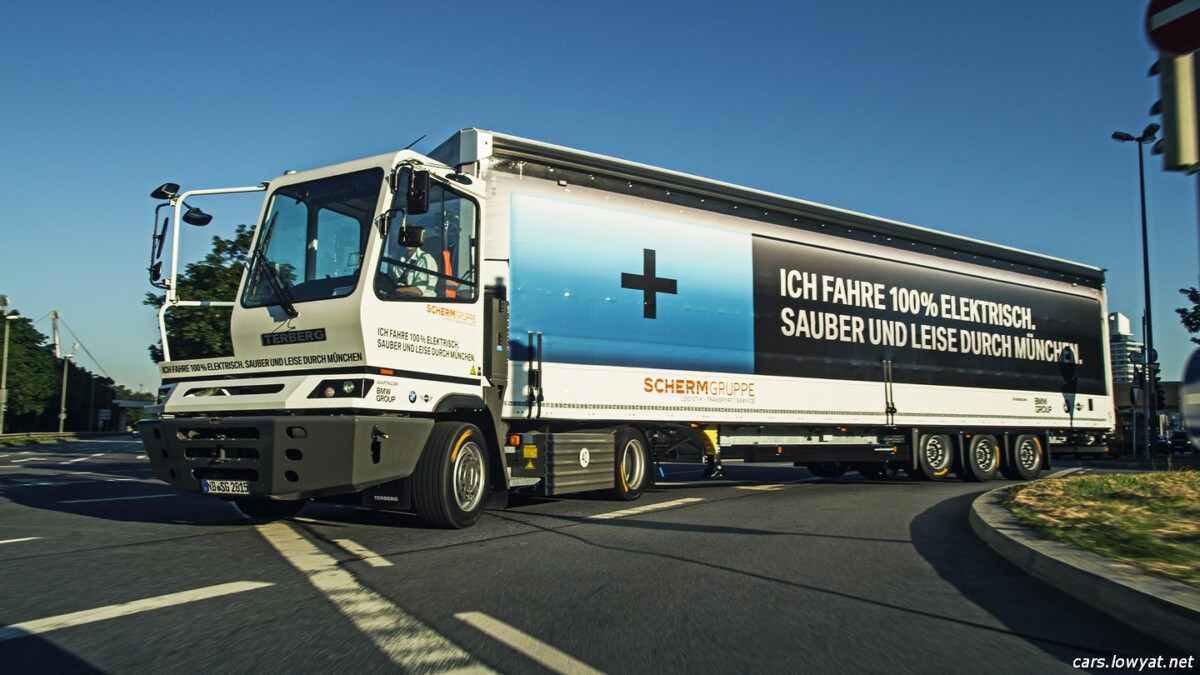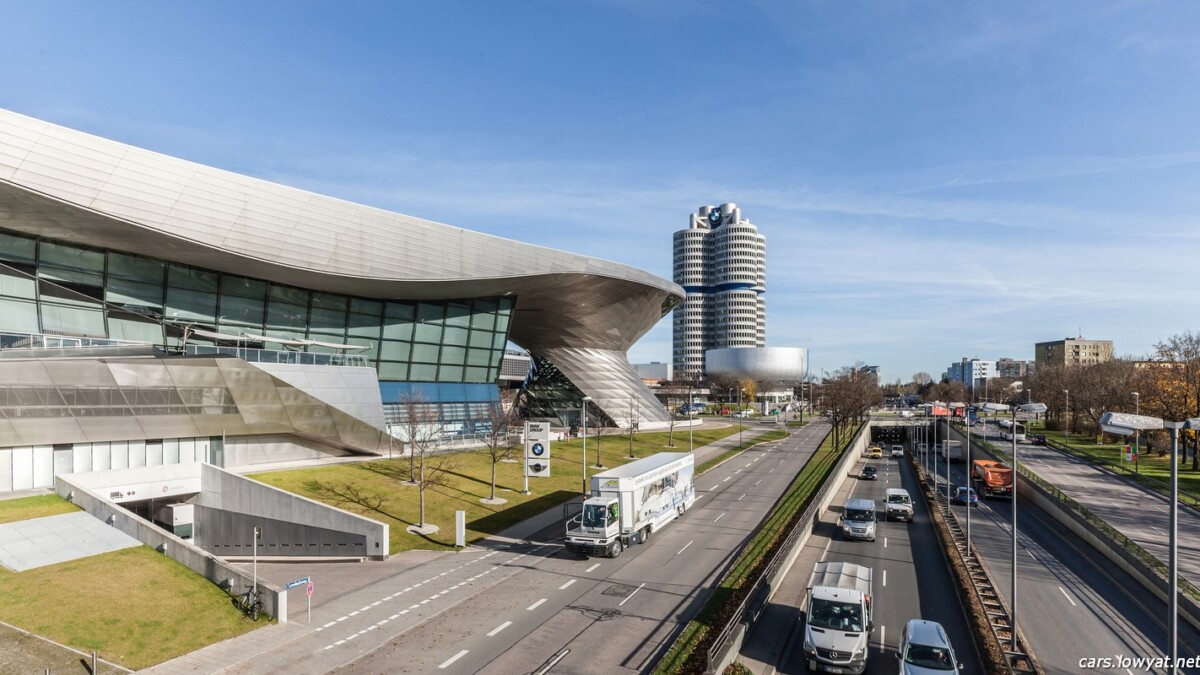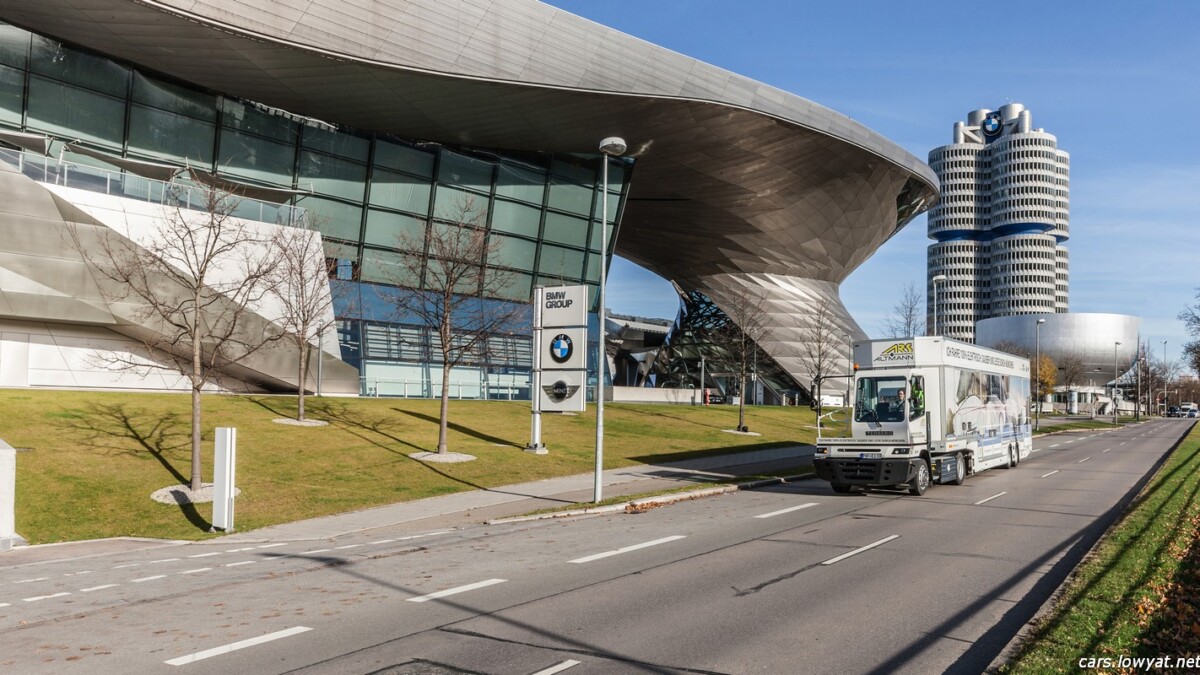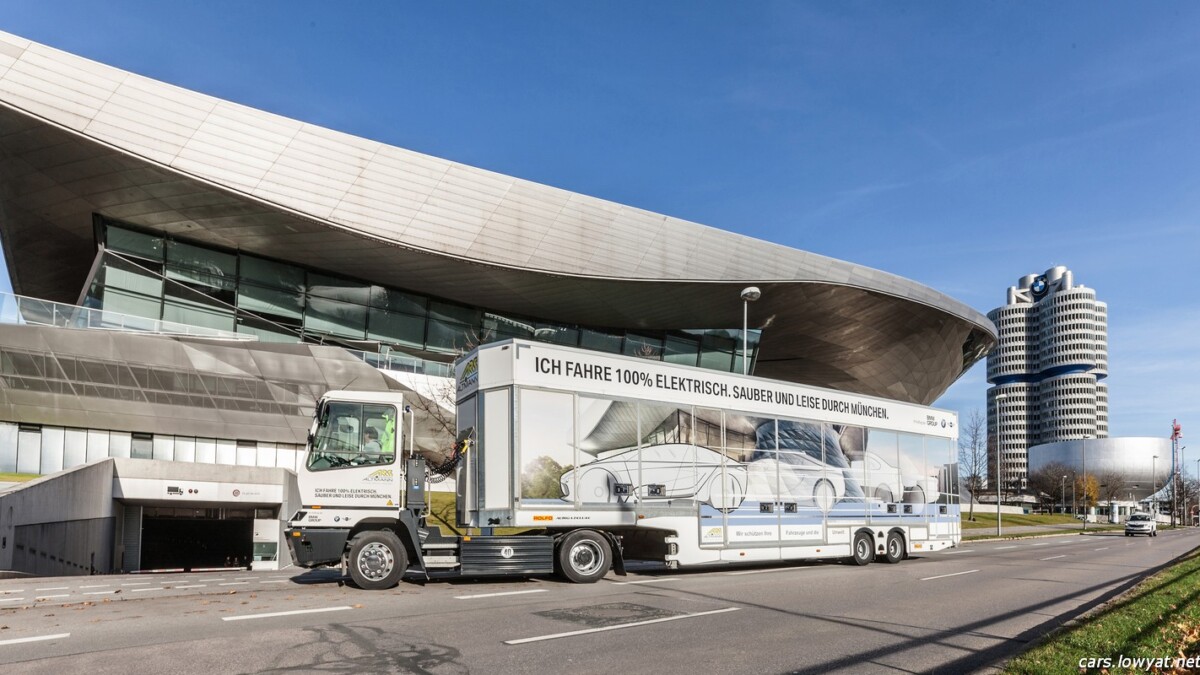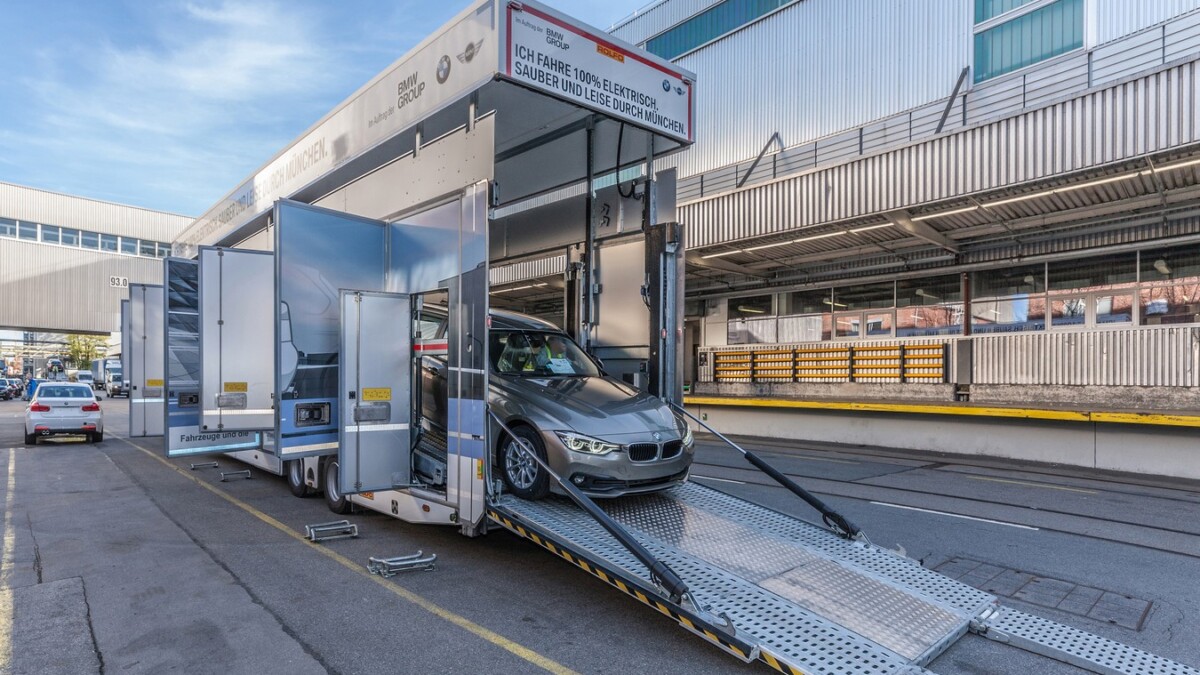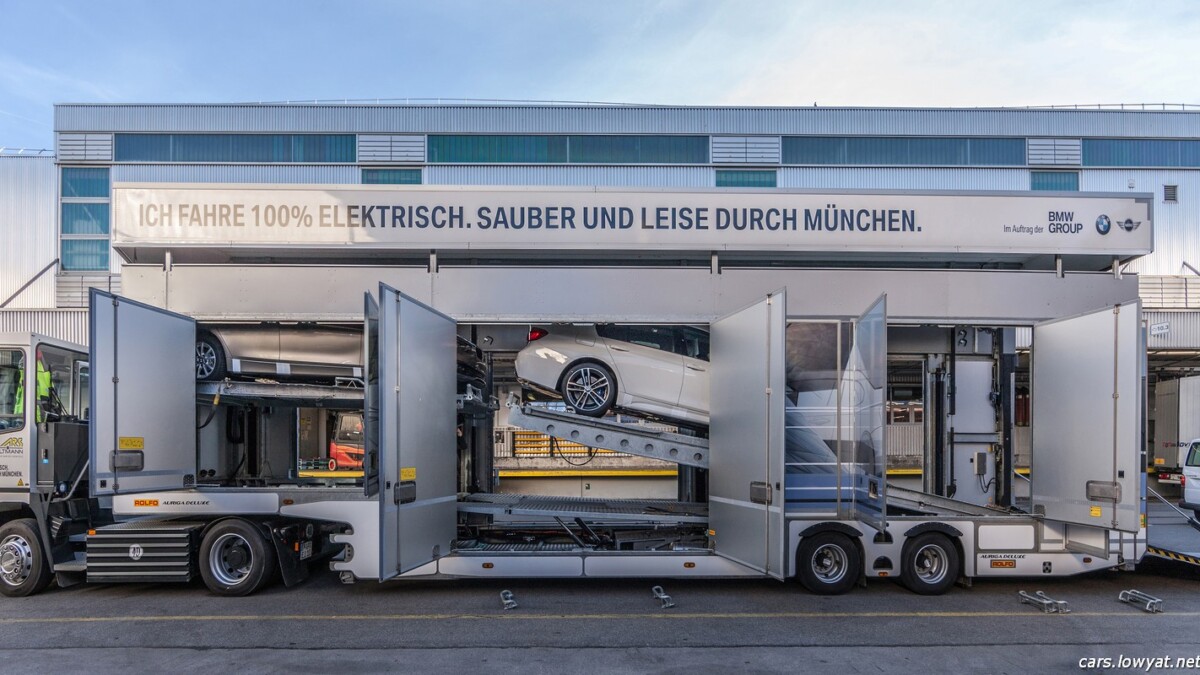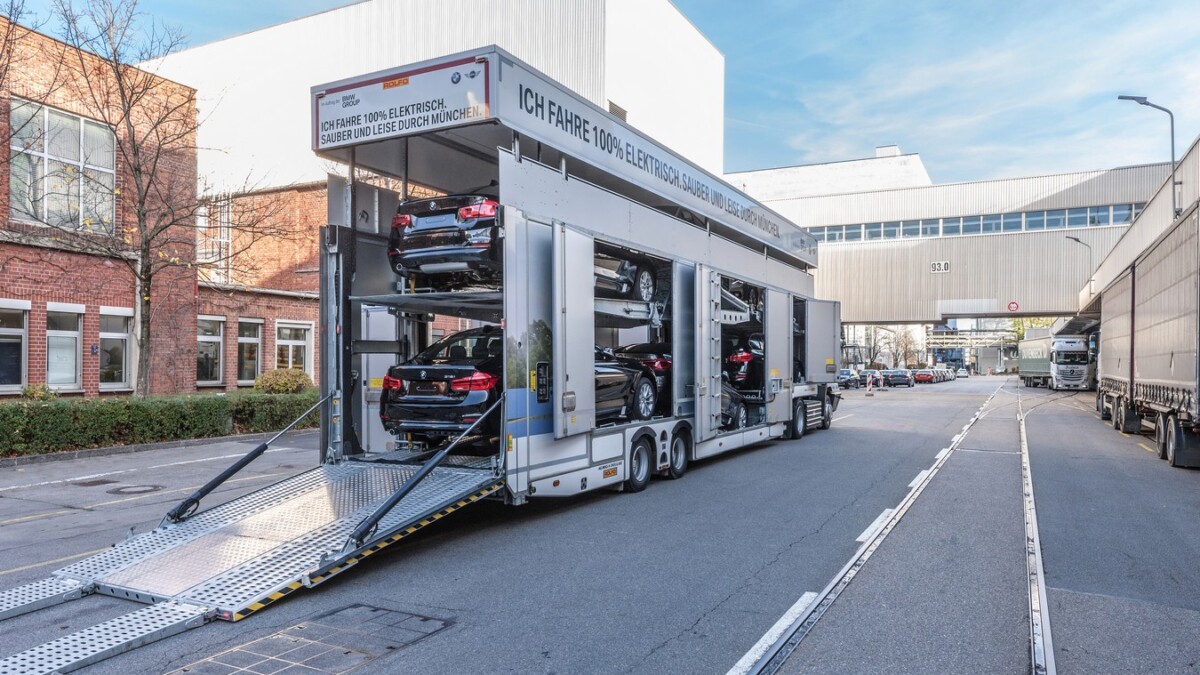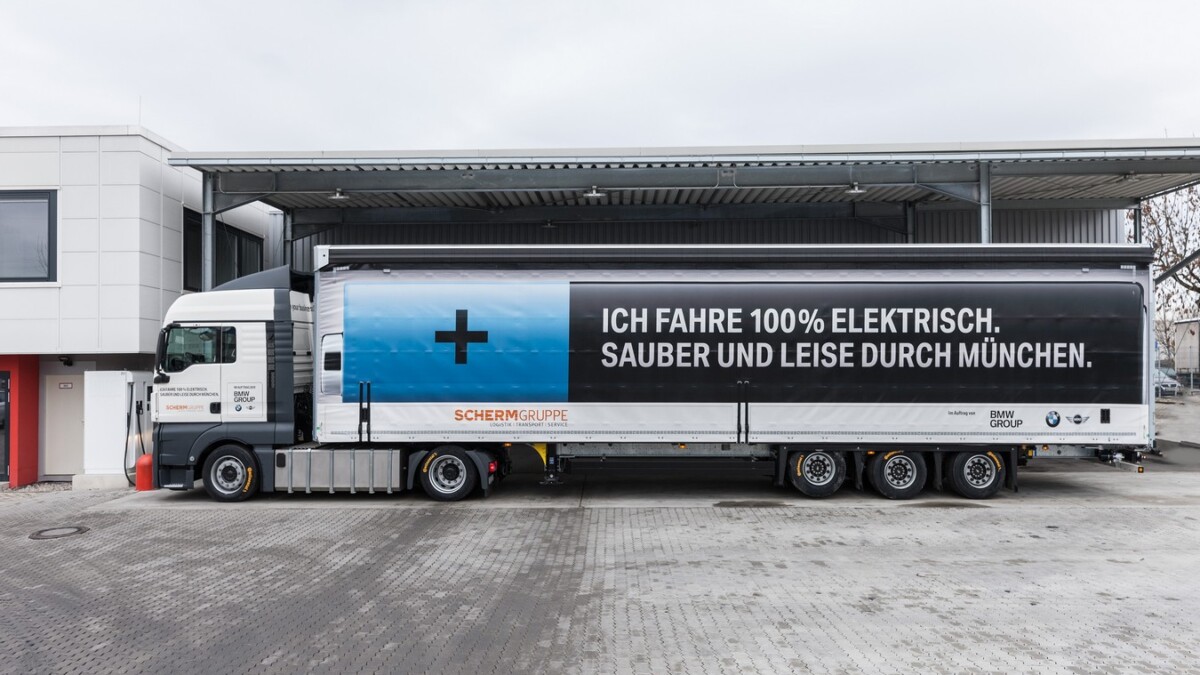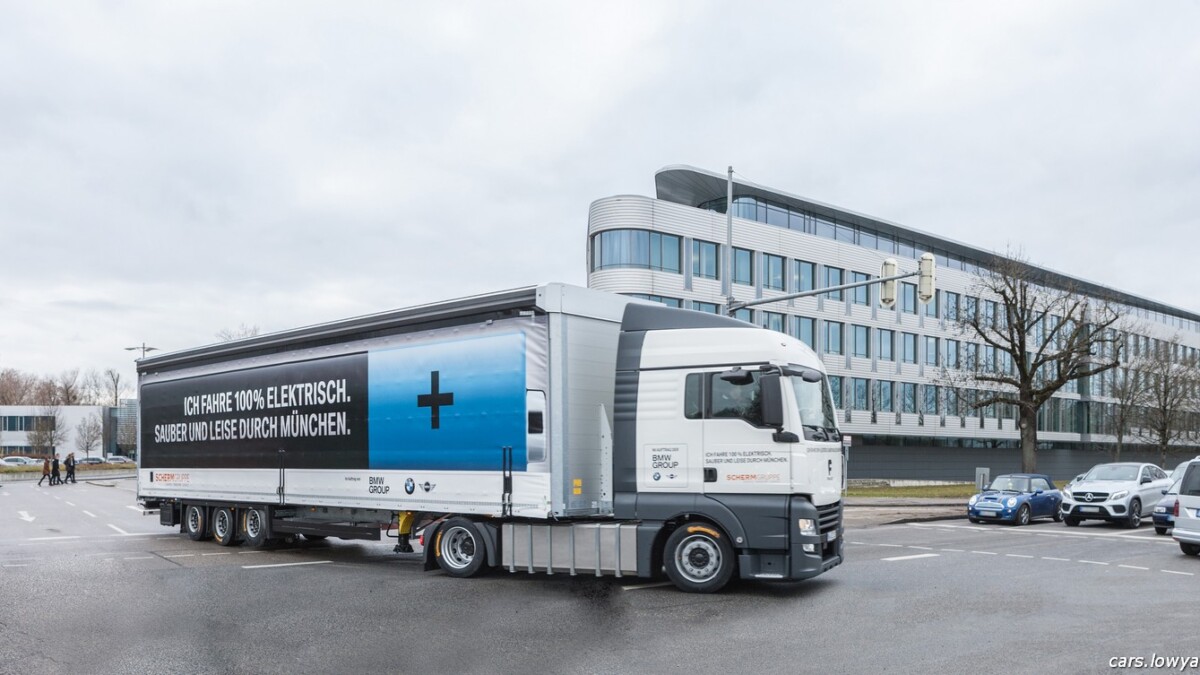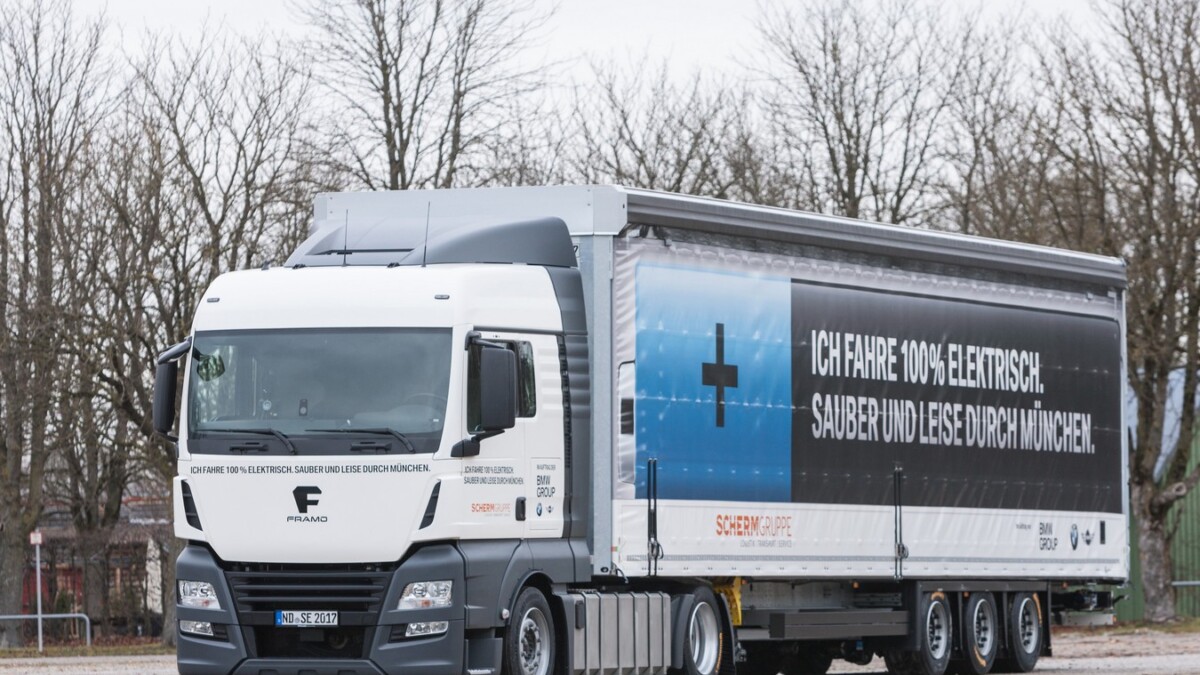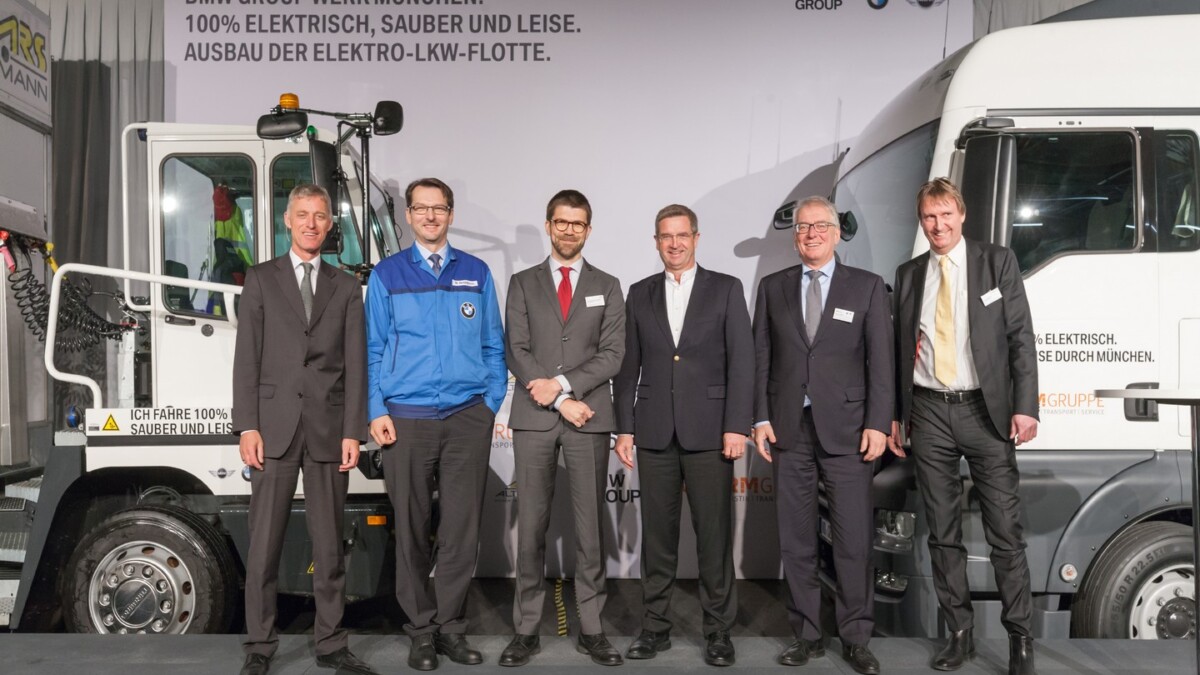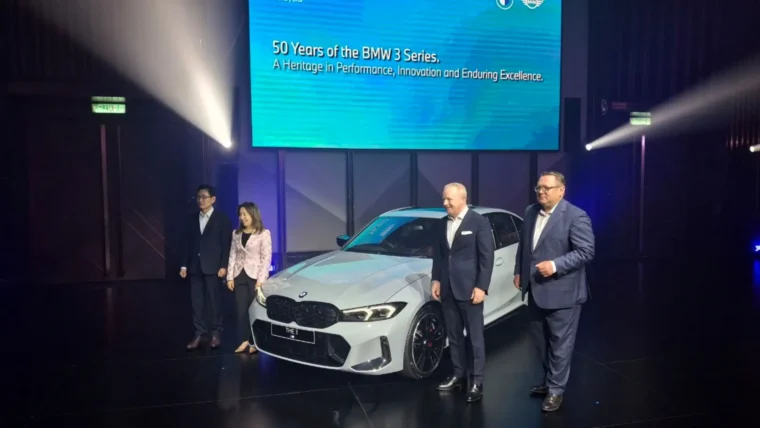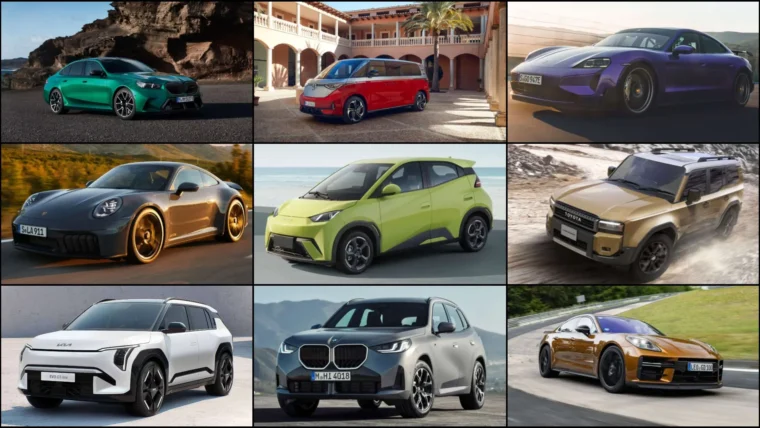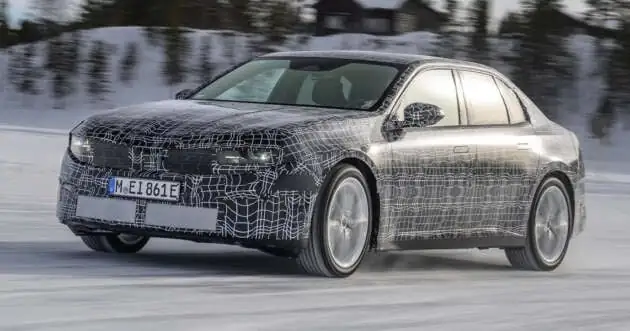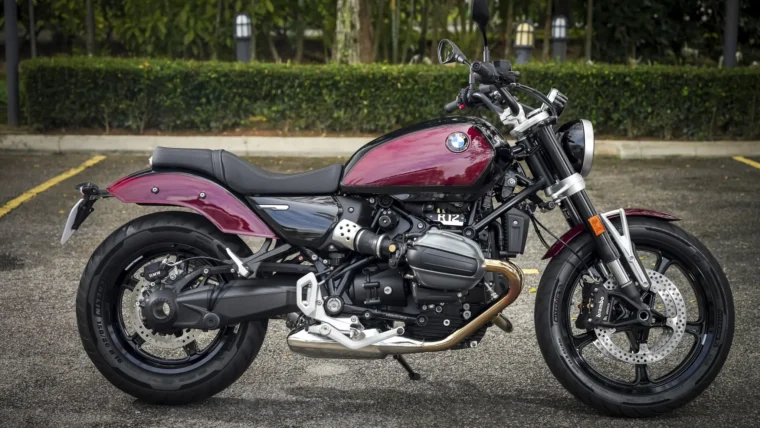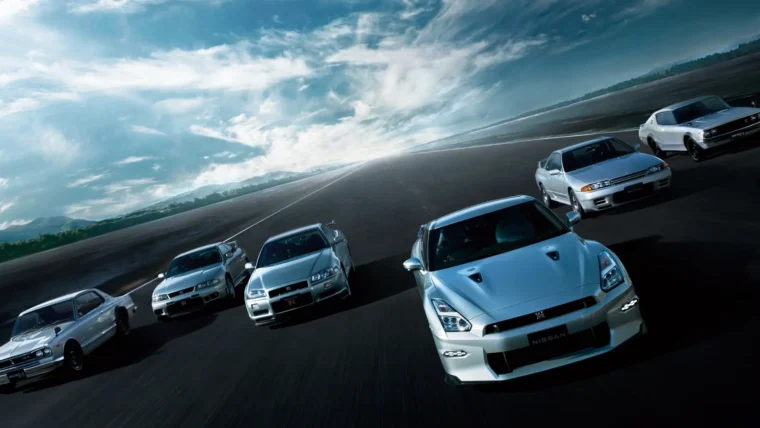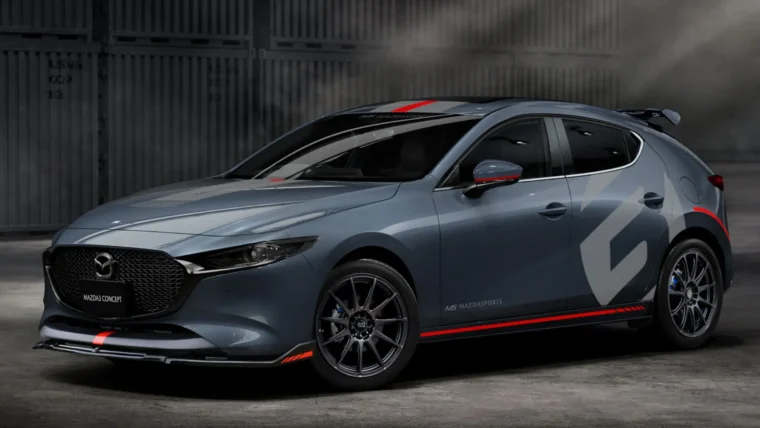Whilst Tesla has recently announced their electric semi which they plan to sell to their customers, BMW has been using electric trucks to transport their cars which are transported to various locations before being handed over to their customers.
Instead of selling these trucks which BMW isn’t really known for, BMW aims to focus on reducing their carbon footprint. As of now, three electric trucks are part of the logistics operations of the BMW Group’s home plant. What began when the first 40-ton electric truck was put into service by the Munich plant in 2015 has now been taken to the next level. Through the use of these e-trucks, the company reduces CO2 emissions by approx. 82 tons annually. All three trucks are used on public roads in the Greater Munich area.

With its first e-truck, logistics service provider ARS Altmann AG transports new cars on a 15-kilometer route through Munich: on its way from the town of Garching north of the city to the BMW Welt, the truck is loaded with vehicles to be handed over to customers; on the way back, it transports finished vehicles from the BMW plant, which will later be dispatched from the Garching site to the European sales network. A special feature of the new e-truck is its covered semitrailer.

The SCHERM Group has been a partner of the BMW Group for over two years, cooperating on matters of sustainable city logistics. The two companies are very satisfied with the experiences gained through the use of their first e-truck, which has operated very reliably since being put into service in July 2015. At a top speed of 40 kilometers an hour, the e-truck covers its route between the SCHERM logistics center and BMW Group Plant Munich eight times daily, saving about 48 tons of CO2 annually compared to a conventional truck.

With its second e-truck, the logistics company now delivers vehicle components from its supply center in Karlsfeld, 12 kilometers outside of the city, to the Munich plant. At a top speed of 64 kilometers per hour, the new e-truck has a range of approx. 160 kilometers. Joined by representatives of ARS Altmann AG, the SCHERM Group and the BMW Group, Kurt Kapp, the City of Munich’s Director Business Development, officially put the two new e-trucks into service.

“The topic of reducing CO2 emissions is more relevant than ever. We are therefore delighted that the BMW Group, together with its logistics service providers, is expanding its fleet of e-trucks and making a forward-looking contribution to reducing emissions in the city of Munich, “said Kapp. “We need innovative and sustainable logistics concepts in order to protect our citizens’ health and enable future production within the city at the same time.”

Thanks to the combination of green energy and alternative drives, the 40-ton e-trucks are emission-free, quiet and generate almost no particulate matter pollution. Compared to diesel engine trucks, the three electric trucks save 82 tons of CO2 annually. This is equivalent to the distance a BMW 320d would travel when going around the world almost twenty times, around 800,000 kilometers. Depending on the specific tractor, the truck batteries take three to four hours to charge. When fully charged, the e-trucks have a range of up to 160 kilometers each.

Dr. Milan Nedeljkovic, Director of BMW Group Plant Munich: “With three electric trucks, we are setting another strong example for resource-saving production in the heart of Munich. We are proud to be a pioneer in sustainable city logistics since 2015 and to make a contribution to reducing emissions in the city by around 82 tonnes.”
Jürgen Maidl, SVP Logistics and Production Network at the BMW Group, underscored the potential of sustainability in logistics: “This expansion of our e-truck fleet demonstrates clearly that we are continuing the implementation of the BMW Group’s sustainability goals for rail and road transport. At the three production sites in Munich, Landshut and Leipzig, we now operate a total of seven electric trucks.”

Dr. Maximilian Altmann, CEO of ARS Altmann AG, emphasized: “With our rail transport systems, we have been contributing to taking heavy goods traffic off the roads for years. It is now time for us to play a role also in putting zero-emission trucks on the road. Together with the BMW Group, we want to drive emission reductions in Munich’s city traffic.”
Kurt J. F. Scherm, CEO of the SCHERM Group, explained: “The successful pilot project with our first e-truck launched in 2015 has motivated us to pursue this course further and use electrified vehicles on additional routes. The new supply center in Karlsfeld is ideal for this purpose.”

With its Strategy NUMBER ONE > NEXT, the BMW Group has prioritized e-mobility, digitalization and autonomous driving as the technologies of the future. In doing so, and based on its sustainable profitability, the company strengthens Germany as a driving force of the mobility and technologies of tomorrow. Urban mobility – and for the BMW Group this also includes urban logistics and transport — is a topic with great future potential. Since late 2013, the BMW i brand represents visionary vehicle concepts, connected mobility services and a new understanding of premium that is strongly focused on sustainability.
Other posts by Mark Leo

